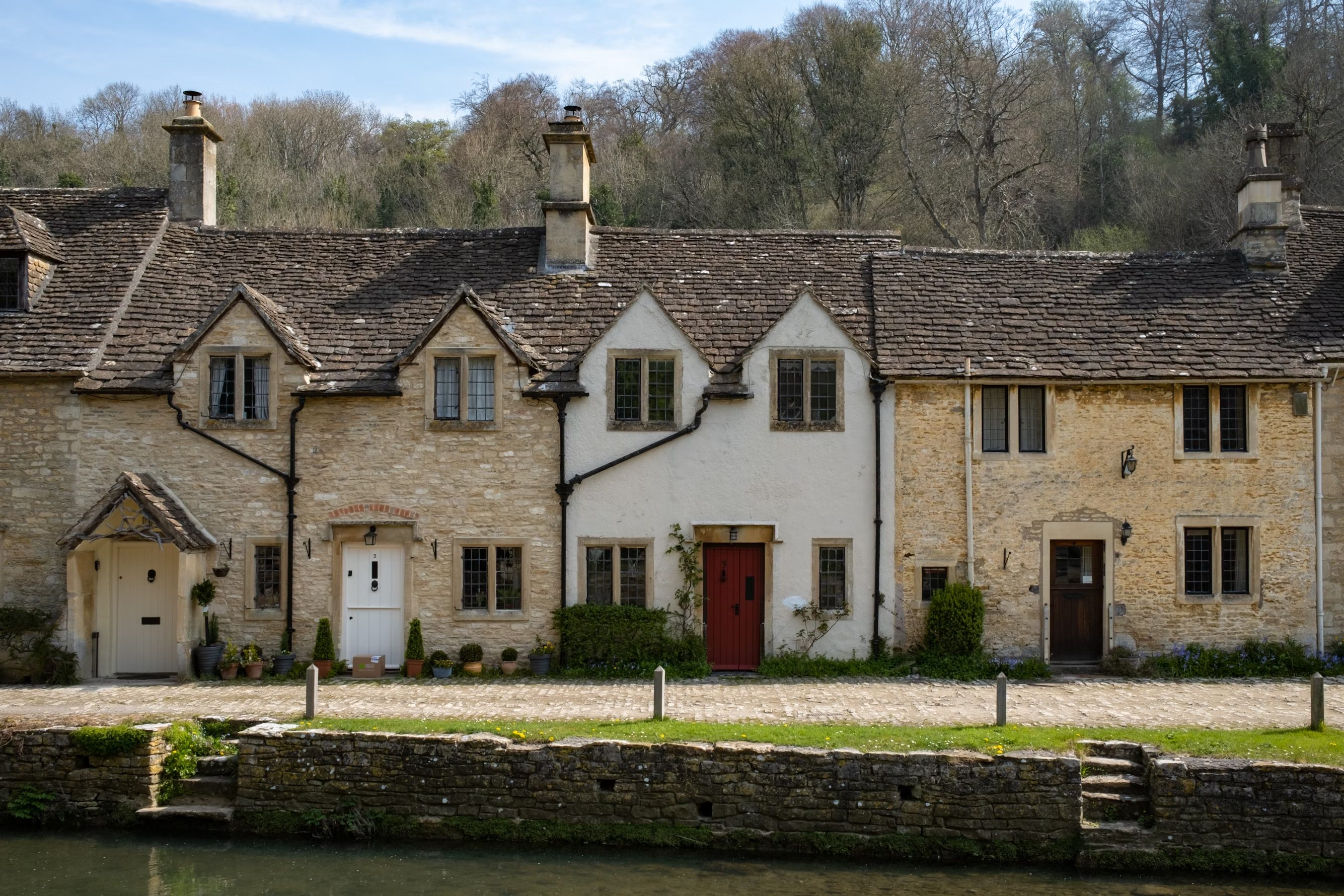
Updated: Oct 24th, 2025
Your Guide to Selling an Inherited Property
Selling a property can be a complex process at the best of times, particularly for those who are not experts in real estate – which goes for the majority of sellers. This challenge is exacerbated when you are handling the sale of an inherited property, alongside dealing with the grief of losing a loved one.
To guide you through this difficult time, this guide offers Auction House London’s expert insights; carefully curated to support you at each stage of the selling process. Our comprehensive guide will answer your questions and help you navigate the intricacies of selling inherited property, including inherited property split between siblings, with confidence.
How to Sell an Inherited Property: Six Simple Steps
-
- Consult the Will:
When you inherit a property, the first essential step is to locate and consult the will of the deceased person who owned the property. The will is a legal document that sets out a person’s wishes as to how their property, money and possessions (also known as their ‘estate’) are to be distributed when they die.
Once you have the will, you will have legal proof of who is entitled to take ownership of the house or property. It is crucial to fully understand the terms before proceeding with any sale, ensuring all legalities are adhered to. Read on for more expert advice on inherited property split between siblings. - Apply for Probate:
Before the property can be sold, you must apply for probate if the deceased’s estate requires it. Probate is the legal process by which the will is validated and the estate administered. You must have probate granted in order to legally sell an inherited property. You can read about auctioning a probate property here. - Pay Inheritance Tax
You may be subject to paying Inheritance Tax, if the estate exceeds the threshold set by HMRC; currently applicable on estates valued over £325,000*. As the inheritor, it is your responsibility to pay the outstanding Inheritance Tax within six months of the date of death to avoid penalties. Failing to pay the correct Inheritance Tax could lead to legal complications during the sale process. However, in some circumstances you can apply to postpone payment of all or some of the tax and interest due if you’re unable to release funds from the estate.
*Correct as of 2025 - Prepare the House or Property for Sale
Although not strictly necessary, preparing your inherited property for sale can be an important step that can significantly affect its market value. Remember that there is no legal requirement to make full repairs or complete renovations to sell your inherited house in the UK. You can read about what not to fix when selling a house in our guide. If you want a fast house sale of your inherited property, consider selling methods such as property auctions. If you do want to address necessary repairs, carry out cleaning tasks and ensure the property is presentable to potential buyers, this can make it more appealing. - Sell the Property
Once you are happy that the property is in saleable condition to suit your circumstances, you are ready to sell your inherited property. Whether you decide to go with a traditional estate agent, sell your house without an estate agent, or sell via auction for a quicker sale, the choice is yours. Auction House London are specialists in selling properties with challenges, so, if you have inherited a property with issues, consider selling your house easily with us. - Pay Capital Gains Tax
If the property you inherited has increased in value since the date of the deceased’s death, you are likely to need to pay Capital Gains Tax when selling. Capital Gains Tax is calculated on the property’s value at the time you inherited it, and the amount it sold for. We recommend seeking professional advice to understand your tax obligations when selling an inherited house or property.
- Consult the Will:

Splitting Inheritance: How Do I Sell an Inherited Property with Siblings?
While grieving the loss of a loved one, navigating the sale of inherited property with siblings can be overwhelming and emotionally draining. Our in-house experts recommend considering the following steps when selling an inherited property split between siblings, to ensure as smooth of a process as possible:
- Firstly, consult the will to ensure that the deceased’s wishes were for the share distribution of the property to be equal (joint tenants) or unequal (tenants in common). If there is no will or trust in place, intestacy rules apply. This means that if the deceased does not have a surviving spouse, the estate will be passed onto their children, splitting the estate equally between siblings.
- Siblings who inherit property have multiple options, including keeping the property and using it as a holiday home, all agreeing to sell the property and splitting the profits, one sibling buying out the other, or all siblings agreeing to rent the property and splitting the rental income. Agreeing on this between all parties – whether joint tenants or tenants in common – is a solid starting point.
- Communicate openly amongst all siblings to ensure transparency and avoid misunderstandings throughout the process. If possible, have legal representatives and a paper trail throughout important discussions.
- Siblings should then agree on a method of property valuation to ensure all parties are aligned on the property’s worth before deciding to sell. If all siblings agree to selling, the process should be more straightforward. Any outstanding mortgages are passed onto the new owners of the property. In this instance, typically, siblings tend to sell the property, pay off the mortgage and distribute the remaining money among themselves. Sometimes, one sibling may decide to buy out the others and take full ownership of the inherited property themselves. Read on for more on buying out your siblings.
- Hiring a conveyancer is recommended as they will submit documents and break down the costs between siblings, including probate costs and Capital Gains Tax owed.
- Consider appointing a professional mediator if disagreements arise, helping to resolve conflicts without escalating tensions.
- Review your tax implications together, including potential Capital Gains Tax, so that all siblings are informed of their financial responsibilities.

How Do You Buy Out Your Siblings’ Share of an Inherited Property?
An inherited property is typically split between siblings, equally as ‘joint tenants’. As one of the siblings, if you wish to remain in the inherited home, it is possible to buy your siblings out. To do this, your siblings must be all in agreement; the option will allow you to keep the inherited property and release funds for them. To buy out your siblings’ share of an inherited property, we recommend:
- Agreeing on a Price
Following the valuation of the inherited property and a clear understanding of the respective shares held by each sibling, a fair and reasonable price for the property should be agreed between siblings. This process of negotiation can be expedited and made more efficient if mediated by a solicitor. - Contacting the Land Registry
Once the price has been agreed by the siblings and the necessary funds are in place to purchase your sibling’s share of the inherited property, the next step is to complete and submit the requisite TR1 form (to transfer ownership legally), signed by all siblings, to the Land Registry. Along with this submission, you must provide the grant of probate and, if applicable, a fee. Again, the help of a solicitor to assist with this process is advised for a smoother application, to ensure that the forms are correctly completed and that the ownership details on the register are updated accordingly.
What Happens When One Sibling is Living in an Inherited Property and Refuses to Sell?
When it comes to negotiating what to do when one sibling is living in an inherited property and refuses to sell, firstly, it is important to be kind and approach the situation gently to begin with; remembering that they are also in the process of grieving and may have many emotions attached to the property, which is why we recommend trying to negotiate calmly first. You could even get a mediator involved, with the aim of coming to a mutual agreement you are both happy with.
Alternatively, if you are keen to sell the property but your sibling wishes to continue to live in the property, you could suggest that they buy you out, where you sell your percentage of the property to your sibling and they continue to live there.
If all else fails, you can take legal action and apply for a legal ‘order for sale’ under the Trusts of Land and Appointment of Trustees Act 1996, which forces the sale of the inherited property. However, this route can be expensive for all parties and draws out the process of selling the house or property significantly.

Selling an Inherited House FAQs
Timings: How Long Do I Have to Sell an Inherited House?
While there is no strict deadline for selling the property, managing some of the more time-sensitive obligations will lead to a smoother sale of your inherited home. Here are some of the expected timelines, when selling the average inherited property:
- Probate Application (Up to 12 Weeks): You must apply for probate before selling the property, which according to Gov.uk, typically takes up to 12 weeks after submitting your application. This process validates the will and grants the legal authority to manage the deceased’s assets. However external influences such as tax issues, Probate Registry backlog, presence of Japanese knotweed and the complexity of the estate can all prolong the process.
- Inheritance Tax (Payable Within Six Months): Inheritance Tax must be paid within six months of the date of the property owner’s death. Failing to do so can result in penalties and delays in the sale. Should you be unable to access the assets within the deceased’s estate prior to the issuance of a grant of probate, you may be able to request HMRC to defer the payment of any or all taxes and interest until the grant is obtained.
- Capital Gains Tax (Payable within 12 months): Capital Gains Tax must be paid within 12 months of the sale, if the property has increased in value.
Market conditions, asking price, survey results, paperwork and complications can all lead to increased timelines when selling your inherited property.
If you are hoping to sell your inherited property quickly, we can provide a cash offer on your property if you are not in a position to wait for a future auction. Cash offers allow sellers a faster and simpler way to sell your property. If you accept the offer, we can set a completion date that suits your needs. Completion can then take place in as little as seven days.
Get an Instant Offer for Your House
Is There a Limit to Selling Inherited Property?
There is no time limit on selling inherited property. The key consideration is the probate process, which in the worst case scenario, can take up to a year to finalise. Until probate is granted, no action can be taken regarding the inherited property. However, when it comes to selling, you have the flexibility to do so at any time after probate is granted, depending on what best suits your circumstances.
What’s the Difference Between Joint Tenants and Tenants in Common in Inheritance?
Joint tenants equally own the property. The difference with tenants in common is that they hold specified percentages (usually determined in the deceased’s will), which can vary. Full siblings usually inherit equally and become joint tenants, but tenants in common are more usual when step-siblings or half-siblings inherit property.
Tax Implications: How Much Tax Do you Pay When You Sell an Inherited House?
Capital Gains Tax when selling an inherited property is an important consideration. If the property is not your main home, Capital Gains Tax is applicable on any profit you make above the property’s value at the time you inherited it (after allowable deductions). This tax is only due when the property is sold.
Whether you’re selling an inherited house yourself, or splitting with siblings, speak to our specialists or request a free house valuation today.
